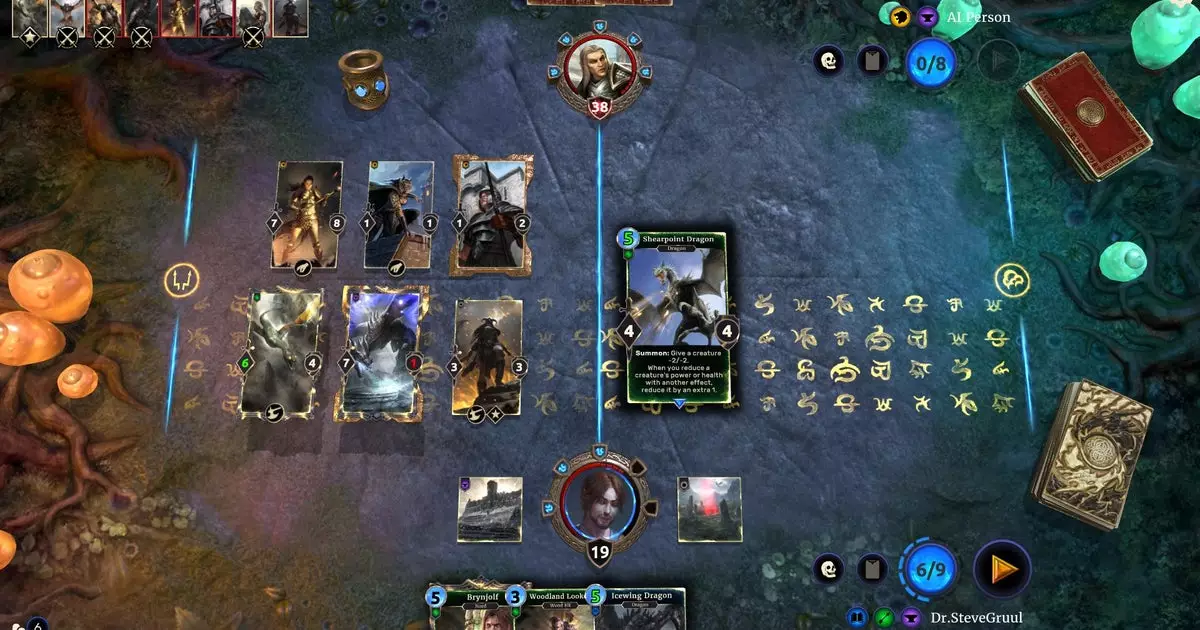As the sun sets on January 30, 2025, players and fans of The Elder Scrolls: Legends will bid farewell to a game that once held a position within the rich tapestry of Bethesda’s beloved fantasy universe. The free-to-play card game, released to much fanfare, will no longer be available on Steam, nor will players be able to engage with its intricacies as servers will be permanently shut down. This decision seems to encapsulate a broader theme within the gaming industry, where transient experiences often overshadow lasting ones.
The Elder Scrolls: Legends was designed with mechanics that aimed to innovate within the genre, integrating a unique rune system that set it apart from competitors like Hearthstone. Critics praised its gameplay for being strategic and engaging, although it did struggle to carve out its own identity within the bustling marketplace of digital card games. This struggle was compounded by a lack of significant updates after 2019, leaving fans stranded in a realm that languished in stagnation. The absence of new content not only resulted in diminishing player engagement but also set a troubling precedent for other games within the live-service model.
Player Reactions
The community surrounding Legends has expressed disappointment but perhaps not surprise at the announcement of its closure. Many players invested countless hours into building decks and strategizing victories, only to learn that their efforts would fade into oblivion along with the game itself. The in-game notifications bear a bittersweet tone, thanking players for their dedication while simultaneously urging them to enjoy what little remains before the inevitable shutdown. This lack of an offline mode further exacerbates the frustration felt by loyal enthusiasts, threatening to eliminate not just the game’s infrastructure but the also shared memories of camaraderie among players.
The Implications for Gaming Culture
The dismissive nature of shutting down games like Legends raises crucial questions about the values upheld by the gaming industry. Are experiences like these simply disposable? Are players treated merely as numbers that contribute to a fleeting profit margin? The reality is troubling—games that require continuous online connectivity can vanish without so much as a trace, echoing the fleeting nature of trends and bubbles in a market that can look historic yet often feels monumentally shortsighted. In contrast, other forms of media—books, films, even traditional tabletop games—maintain a tangible existence long after their initial release.
Ultimately, the closure of The Elder Scrolls: Legends exemplifies a growing concern within the gaming industry: the ephemeral nature of online experiences. With each server shutdown, we not only lose access to a game but also erase the invested time and emotional connections that players cultivated within that realm. It prompts a desire for a new paradigm—one that respects player contributions and acknowledges the richness of shared experiences, ensuring that digital landscapes do not simply flicker out, leaving nothing but a memory. The ultimate question that lingers is whether or not we will ever learn from these losses or if we will continue down the same path of disposability.

